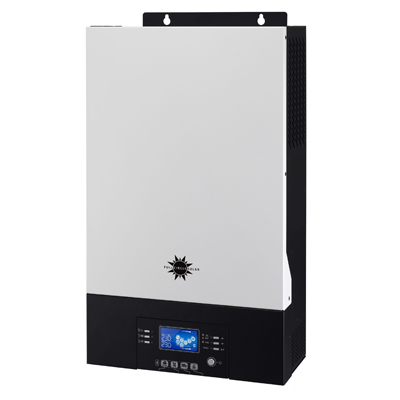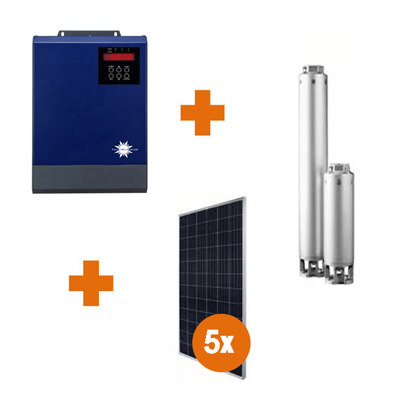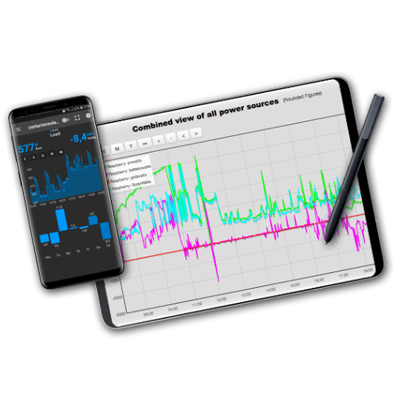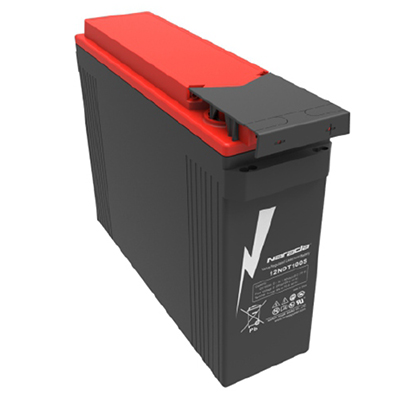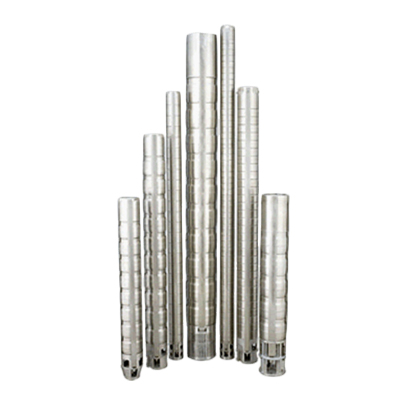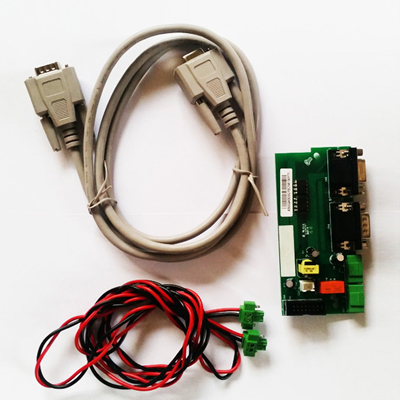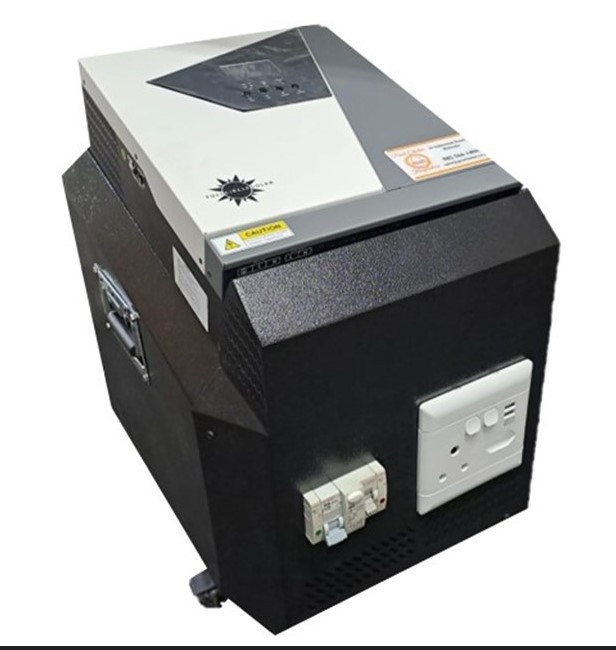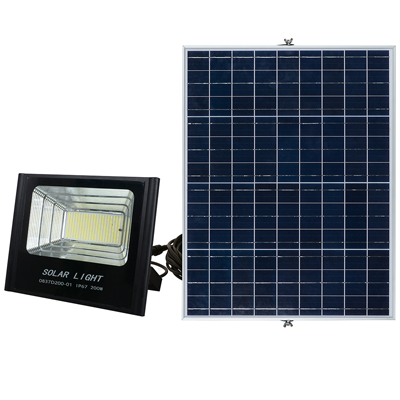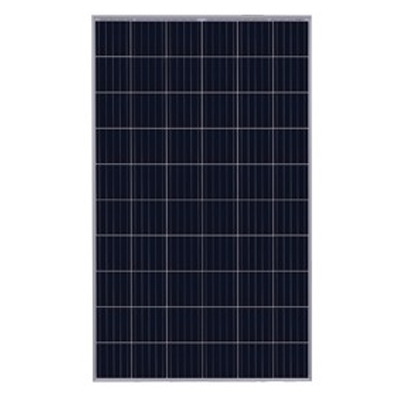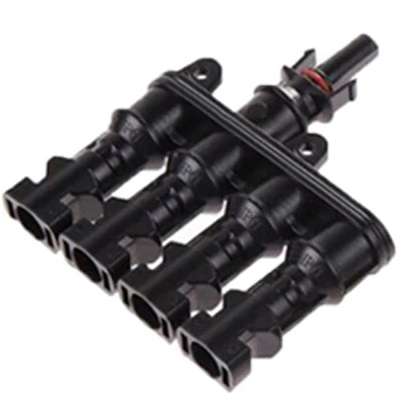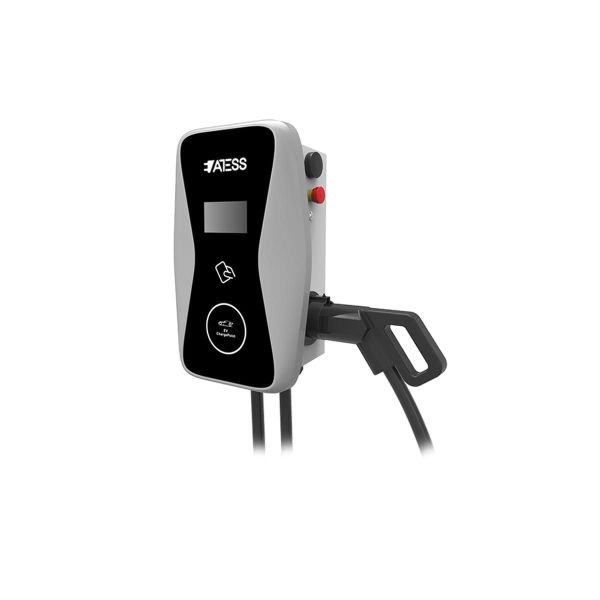Best solar inverters for sale in South Africa
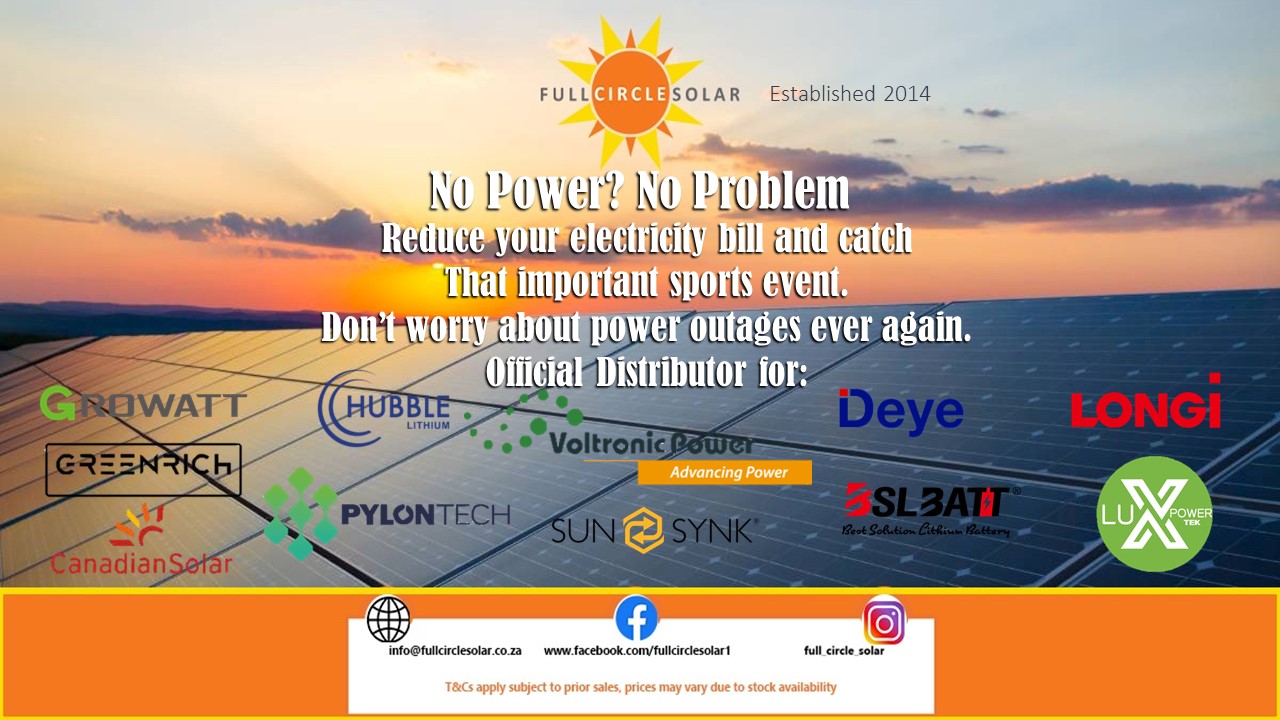
![]() Delivery & installation can be arranged
by a Full Circle Approved Installers
Delivery & installation can be arranged
by a Full Circle Approved Installers
![]() Secure online payments (EFT)
Secure online payments (EFT)
Our Solar Products
ABOUT US
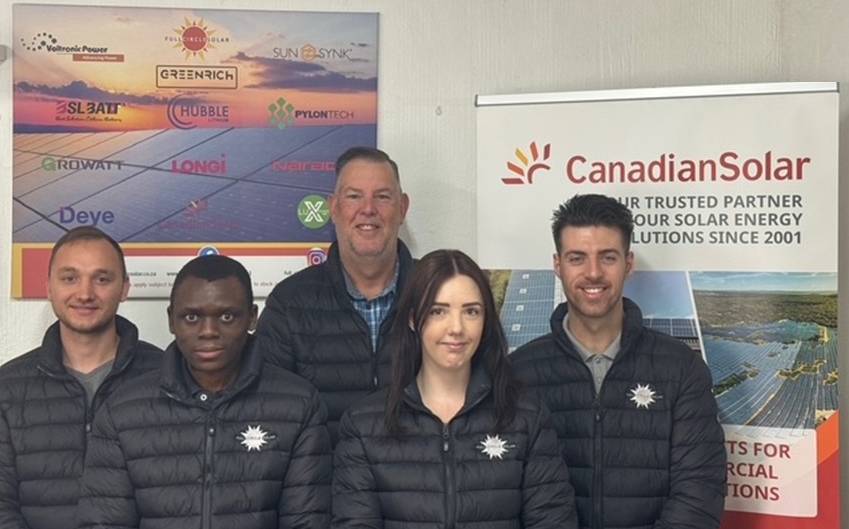
Full Circle Solar
Full Circle Solar is the premier provider of reliable, high-quality solar inverters for sale in South Africa. We supply innovative solar inverter solutions to South African homes, businesses, and developers who want to enjoy a steady flow of clean energy from their solar panels, inverters and battery backup systems. Whether you are building a new solar panel & inverter/battery system or upgrading an existing one, you will want a solar inverter, solar panels and battery backup system you can depend on.
Get in touch with us
Contact Details
Email: info@fullcirclesolar.co.za
Sales 1: 076 713 6566
Sales 2: 083 435 0297
Repairs ONLY: 063 941 5956
Location
Next to Gas Pro and Mag Engineering
Unit 5, 435 Strauss Crescent
Wadeville
Germiston
Our Story
From small beginnings in 2014 from our premises in Johannesburg South Africa and a loan from a friend, and being one of the 1st Solar supplier companies in South Africa at the time our company focused on supplying alternative energy solutions to the public and installers to help deal with the energy crisis at the time in South Africa and neighbouring countries like Botswana and Zimbabwe, with our main focus on Quality Solar inverters, AGM and Gel batteries at the time accompanied with the largest solar panels available at a mere 250w.
Best Solar Brands
We have come a long way and now supply many top brands of Solar Inverters, Lithium Ion Batteries and up to 700w Solar panels today in 2025. We pride ourselves on supplying only quality solutions and quality products at competitive prices.
Working together with all OEM,s. As well as being a direct importer we can offer our customers competitive pricing, with no middle men, quality products and the latest technology to suit each customer’s needs.
Installation and Technical Support
By working closely with the OEM’s we are able to offer technical support both in house and from our OEM’s technical team. We are able to design for single phase and 3 phase applications from 3Kw to 500Kw systems.
With over 40 years experience in the Electrical field with inhouse qualified Electrician and Electrical engineer in both Heavy and light current applications we differentiate ourselves from our competitors. We strive to only supply quality products that we have been trained on and are able to assist technically on to ensure customer service, reliability and customer satisfaction.
Top solar Supplier
We have grown the business to a point where we have our own 500m2 Warehouse, our own in house repair centre and technical team, endeavouring to stay ahead of the pack. Contact us for sound and correct advice on all our products and to obtain a competitive and comprehensive quotation.
It is important to bear in mind that an appropriately designed quality solar system, which is correctly installed, will far outlast all its inferior counterparts. Remember this is a long-term investment. “Goedkoop koop is Duur koop”
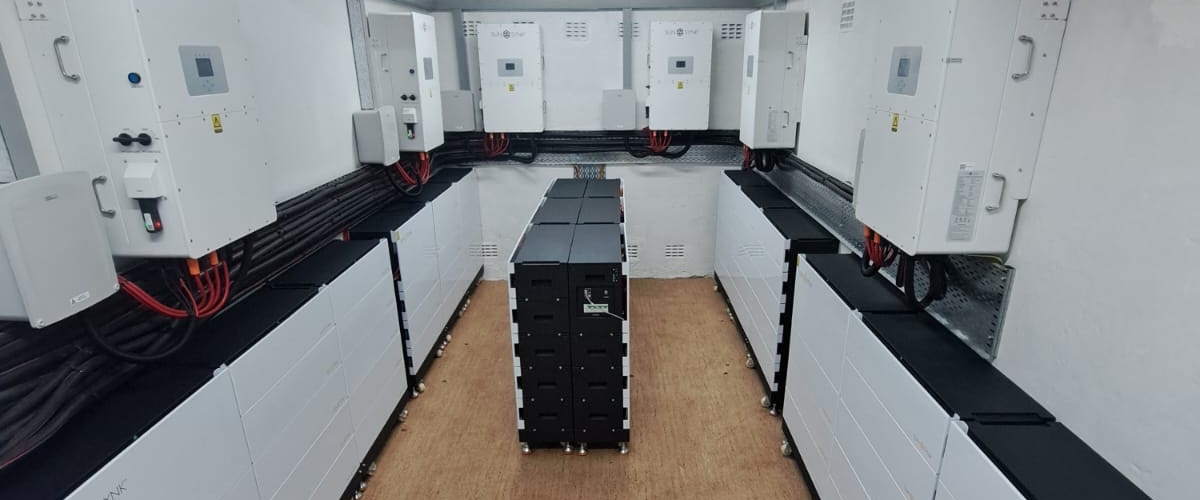
WHAT MAKES OUR SOLAR INVERTERS SUPERIOR IN SOUTH AFRICA?
TOP MANUFACTURERS
Our solar inverters for sale are of top quality manufactured by reputable manufacturers with excellent after sales service and technical support with many years’ experience in the solar inverter industry. They can quickly convert direct current (DC) energy from the sun and convert it into alternating current (AC) electricity for your home or business. We have partnered with several popular brands to ensure we supply only the best solar inverters, including:
- Sunsynk
- Deye
- Axpert
- Growatt
- Luxpower
- Solis
- Voltronic.
These are all brand names you can trust.
COMPLIANT WITH NATIONAL STANDARDS
All our solar inverter models have been fully tested and proven compliant with local and national standards and regulations. They can easily withstand the dusty, hot weather conditions in South Africa, helping you maximize solar power at your home or business. There is even a real-time data feedback system to help you maintain an optimal system performance without any deficiencies.
TOP SUPPORT
We work with OEMs to offer you the latest and most advanced solar inverters at competitive prices. Our technical team can install your solar inverters and provide ongoing customer support whenever you need it. You can always rely on us to optimize your solar energy system's performance.
SOLAR ACCESSORIES
Do you need solar accessories? In addition to our high-quality solar inverters, we also offer essential inverter accessories to keep your system fully functional. These accessories include:
- Canadian solar panels
- JA solar panels
- Longi solar panels
- Narada lithium batteries
- Sunsynk lithium batteries
- Greenrich lithium batteries
- BSL lithium batteries
- Eenovance lithium batteries
- LBSA lithium batteries
- Deye Lithium Batteries
- Dyness lithium batteries

As well as power trolleys, solar cables, Battery cables and MC4 connectors as well as roof mountings for most types of roofs to fix your solar panels to. We also supply combiner boxes and AC boxes to simplify your installation. Whatever Solar related accessory you need, we can provide it.
Storing the solar energy absorbed during the day in your batteries will allow you to consume it as electricity at night. Our lithium-ion batteries are next-generation solar energy storage technology, offering higher energy density, longer lifespans, and faster charging times than other solar energy solutions. We will advise on best combinations to suit your needs and pocket, with over 12 years experience in the solar industry we can offer the correct solution at a competitive price.
Inverter vs Generator
Why an Inverter?
When talking about mobile power solutions, someone always tries to make the correlation between an inverter and a generator. An inverter can be explained as “a generator that uses the battery as its fuel tank”.
But which is better?
- Generator:
-
Generators are AC power supplies that use fossil fuels as their main source of energy. In other words, they use fuel (diesel or petrol) to run an engine. One of the major drawbacks of a generator is they can be inefficient and waste a lot of fuel if they’re not run at the appropriate load. Generators also unnecessarily pollute the environment. If your generator is run below seventy five percent of its rated capacity, this can cause carbon buildup on the critical engine components, shortening the life of your generator’s engine. In addition, generators are noisy & expensive to run and maintain. The running and service costs per Kwh can exceed R15.00/Kwh.
For more information on generators, see http://en.wikipedia.org/wiki/Diesel_generator. - Inverters are also AC power supplies but they use stored DC electrical energy in a battery or battery bank. They use electronics and transformers to modify the DC to AC and then boost the voltage to create 220V. Inverters are extremely efficient, even when compared to generators, and only consume DC power in direct relation to the amount of AC power they put out.
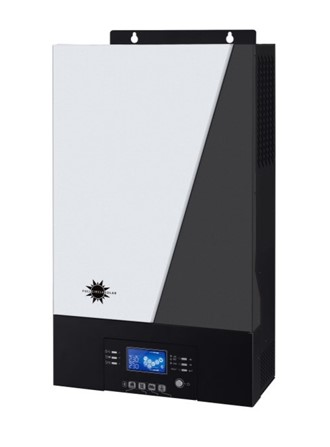
Inverter
Other major benefits of inverters are:
- they are virtually silent compared to generators;
- the batteries are charged when connected to the main utility power source, alternatively solar panels can be used to charge the batteries;
- they are comparatively light weight compared to generators;
- there is no need to store fuel (diesel or petrol);
- the running costs are much lower;
- there is little or no maintenance involved.
An inverter system is easily able to replace any power supplier, with the use of sufficient solar panels. The long-term benefits of such an investment require no justification. With our FCS K5 range, which is a modular system, you can add additional units as your demand increases (to a maximum of six units) providing for up to a total of 24000 W. Our products enable you to commence on a smaller more inexpensive scale and to increase the size and efficiency of your system should your needs require. This ensures you will never have to sell your inverter to buy a bigger one.
Our units are configurable to run as three phase inverters as well allowing 10000w three phase.
We at Full Circle Solar, offer a wide range of Solar Inverters for sale in South Africa, as well as inverter installation options if required. Our inverter models include popular brands such as Voltronic, Infinisolar, Axpert, Sunsynk and much more. We also sell inverter accessories such as Canadian Solar Panels, Narada Lithium Batteries, power trolleys, cables and connectors as well as repairs.
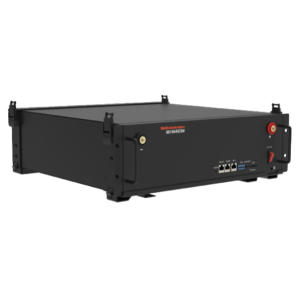
The Benefits of Solar inverters in South Africa:
- Cost Saving: Save money by using the suns free energy.
- Converting energy: it takes DC (direct current from the battery & solar panels) and convertsthis into AC (alternating current) electricity used for homes and businesses.
- Compatible with the grid: ensures seamless integration and changeover with the grid as well as accommodating feedback into the grid depending on inverter type.
- Power Maximization:Ensures maximum use of solar produced by means of a MPPT tracker (maximum power point tracker) to capture the suns power.
- System Performance: Makes available real-time data for fine tuning of the system.
- Safety Features: Protects the whole system by monitoring all the inputs according to set values.
- Modularity: Thus you can add more inverters and solar panels.
- Cost Savings: reduces enery bills due to self consumption.
- Environmentally Friendly: creates the use of renewable energy, reducing carbon footprint.
Contact us today
Full Circle Solar supplies the best solar inverters & systems in South Africa & Southern Africa for individuals and businesses. We offer the most reliable brands and expert system designs than you can find anywhere else. That is why you can trust us to deliver the perfect solar inverter installation to suit your needs and pocket, Install today and start saving money and even put money back in your pocket with an Inverter solar battery system supplied by Full Circle Solar.

